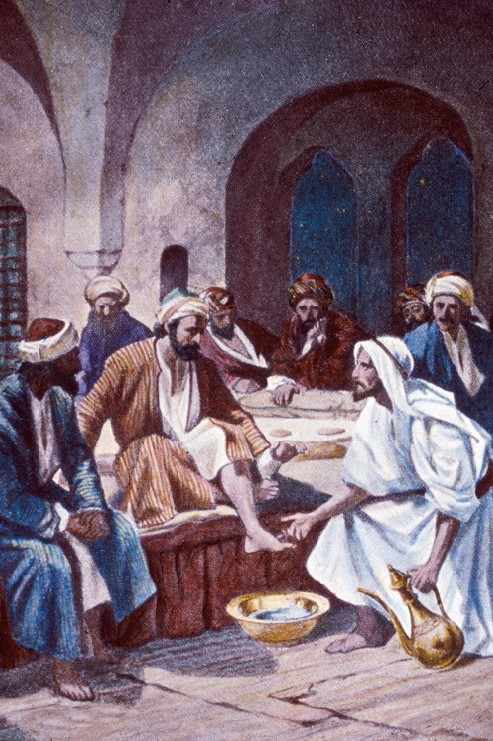GOD IS OUR CREATOR, therefore any ability or talent we have is a gift from Him. It is natural for us to feel pleased with ourselves when we have succeeded in performing a task or on achieving a goal, but if our abilities are God-given then our praise should be to Him.
‘Pride comes before a fall’ is a well-known English proverb, but its origin is to be found in the Bible: ‘Pride goes before destruction, and a haughty spirit before a fall’ (Proverbs 16:18).
Jesus told a parable in which a Pharisee and a tax collector were both praying in the Temple (Luke 18:9–14). The Pharisees were the leaders of the Jewish religion, and the tax collectors were Jews who collected taxes for the Roman rulers. The Pharisees loathed and despised them.
‘The Pharisee, standing by himself, prayed thus: ‘God, I thank you that I am not like other men, extortioners, unjust, adulterers, or even like this tax collector. I fast twice a week; I give tithes of all that I get’ (vs. 11–12). He made no mention of his own sins and showed no remorse or humility before God. He only boasted of his virtues. But he readily listed the sins of others. On the other hand, the publican did not boast of any virtue he might have had. He was only conscious of his own sinfulness in the sight of God. ‘But the tax collector, standing far off, would not even lift up his eyes to heaven, but beat his breast, saying, “God, be merciful to me, a sinner!”’ (v. 13). Jesus’ appraisal of the tax collector is in verse 14: ‘I tell you, this man went down to his house justified, rather than the other. For everyone who exalts himself will be humbled, but the one who humbles himself will be exalted.’
The Example of Jesus Christ
The greatest example of humility of course is to be seen in the character of the Lord Jesus himself. He devoted his whole life to serving others and sought for no worldly possessions. When he was about to give up his life on the cross, he showed his humility in washing the feet of his disciples (John 13:1–17). By doing this he set an example for all his followers. He told his disciples: ‘Do you understand what I have done to you? You call me Teacher and Lord, and you are right, for so I am. If I then, your Lord and Teacher, have washed your feet, you also ought to wash one another’s feet’ (vs. 12–14).
Marion Buckler


